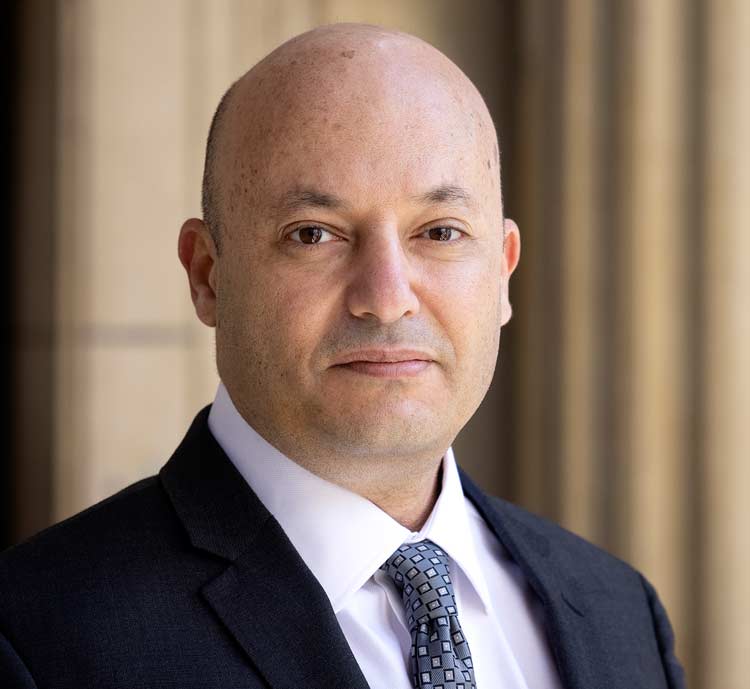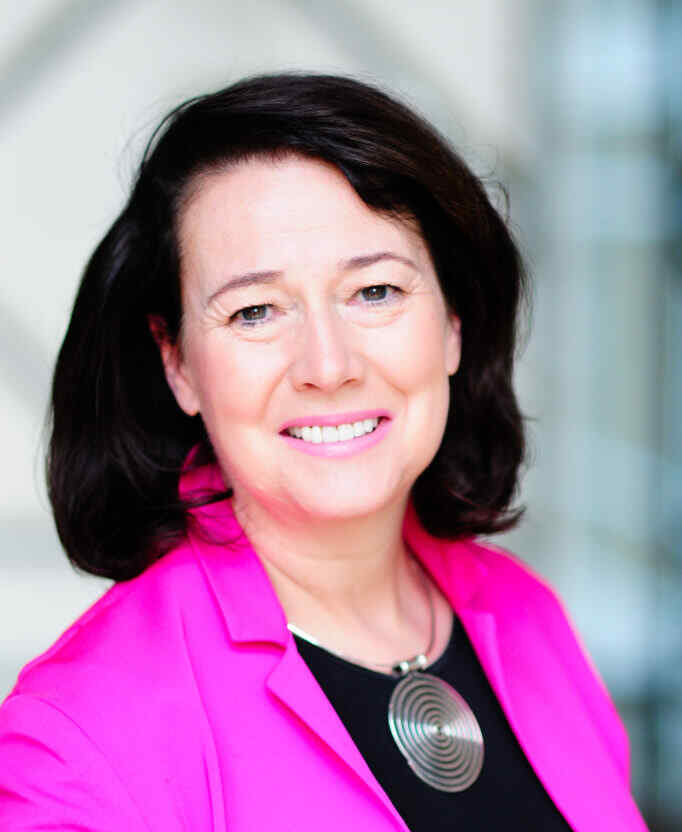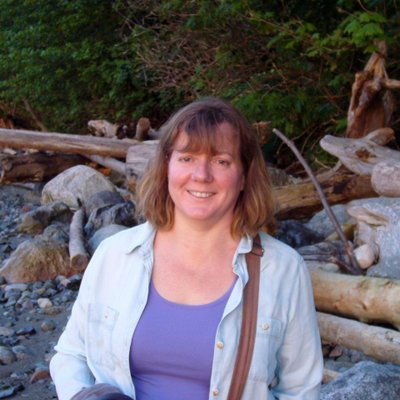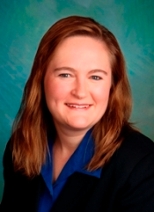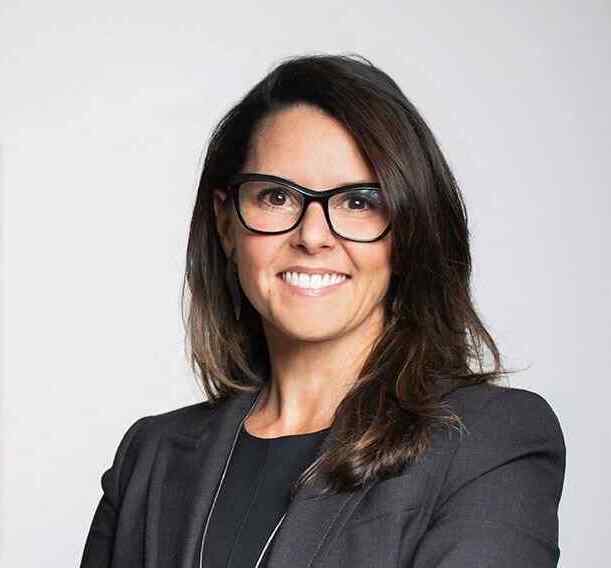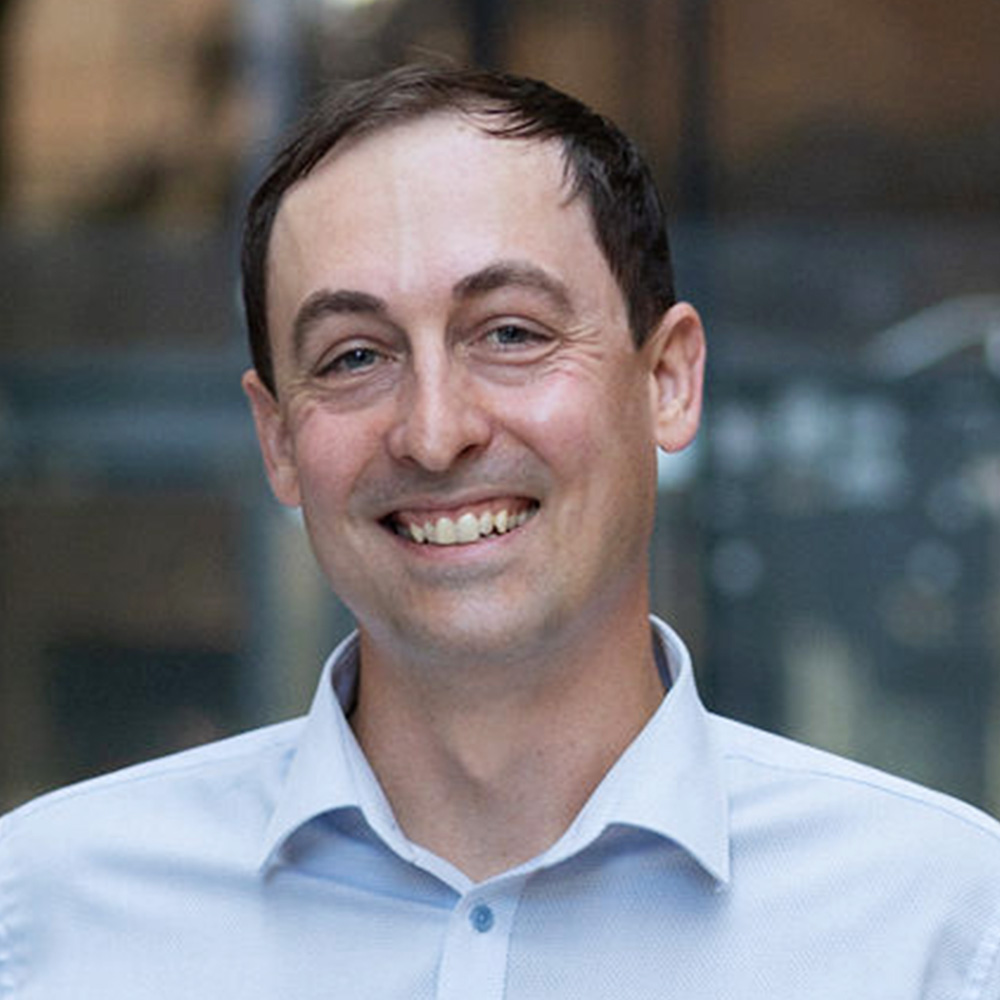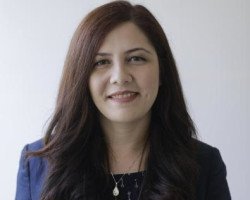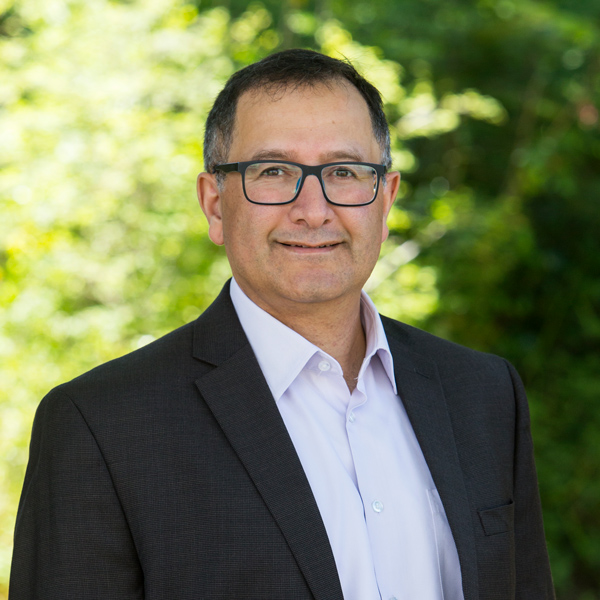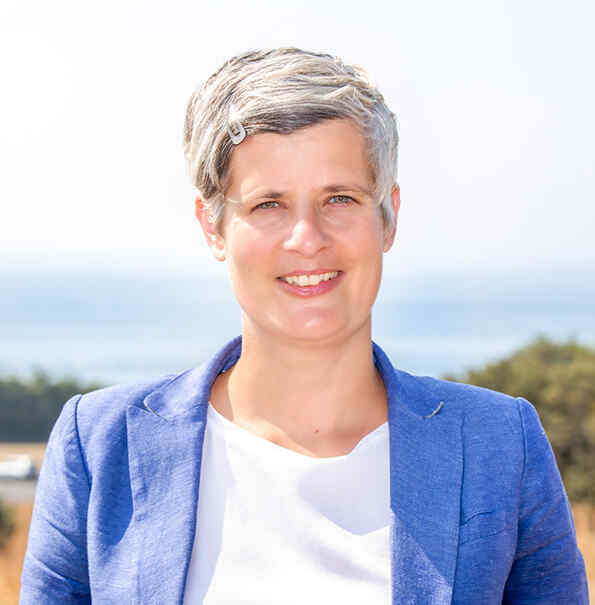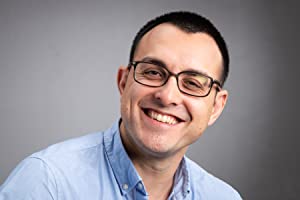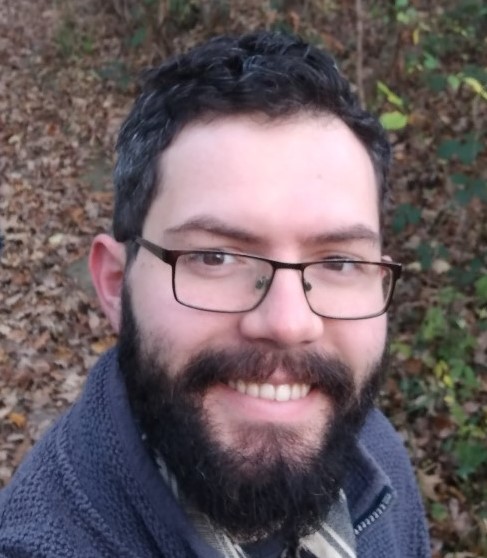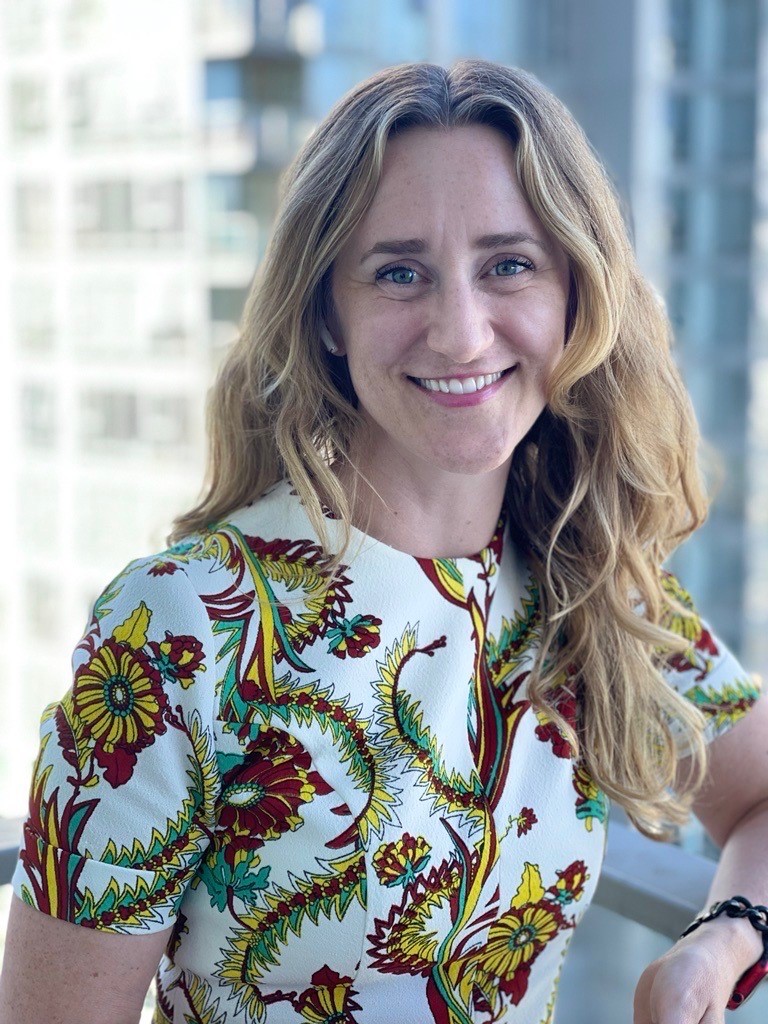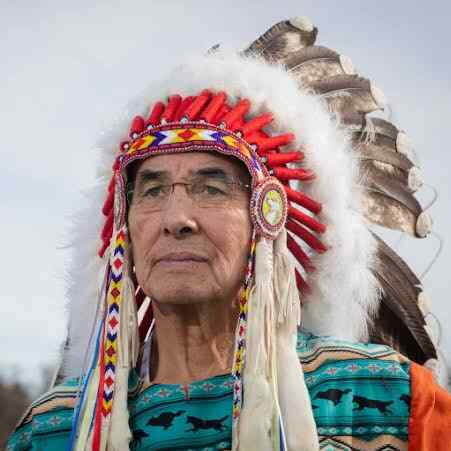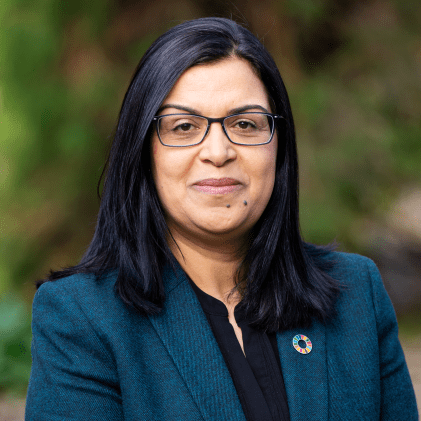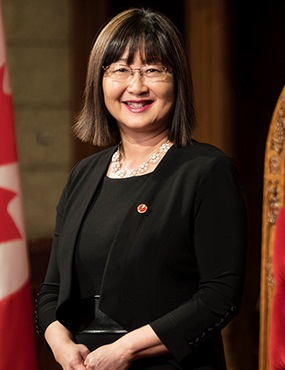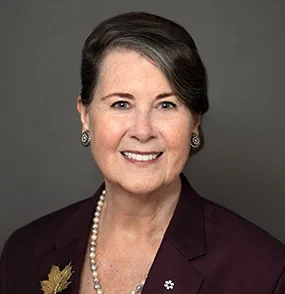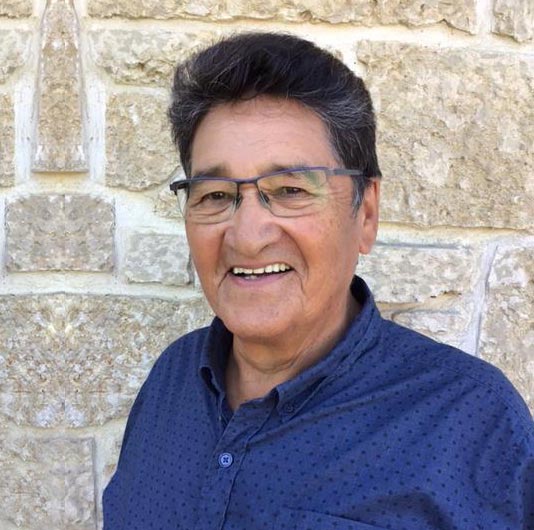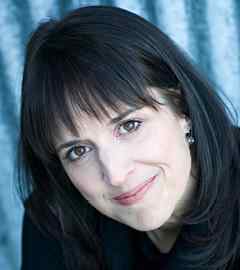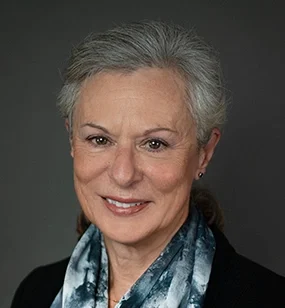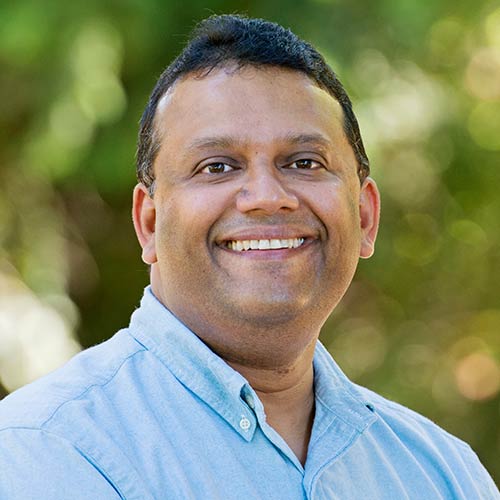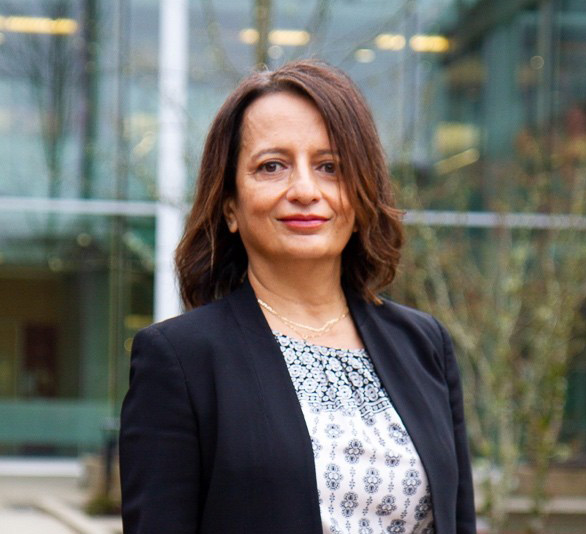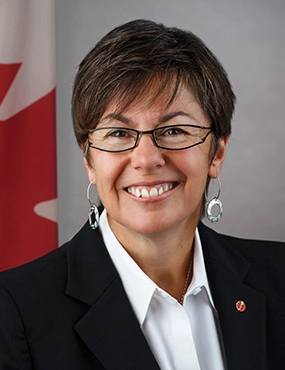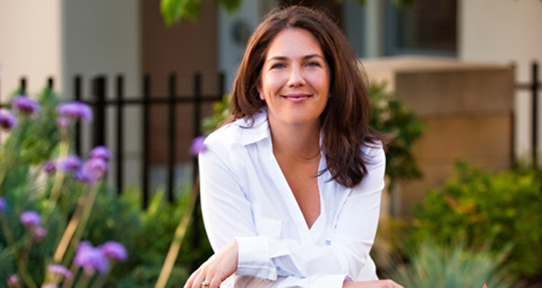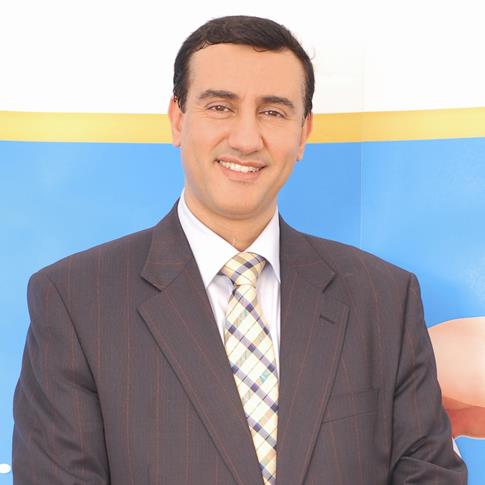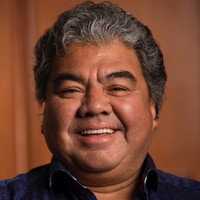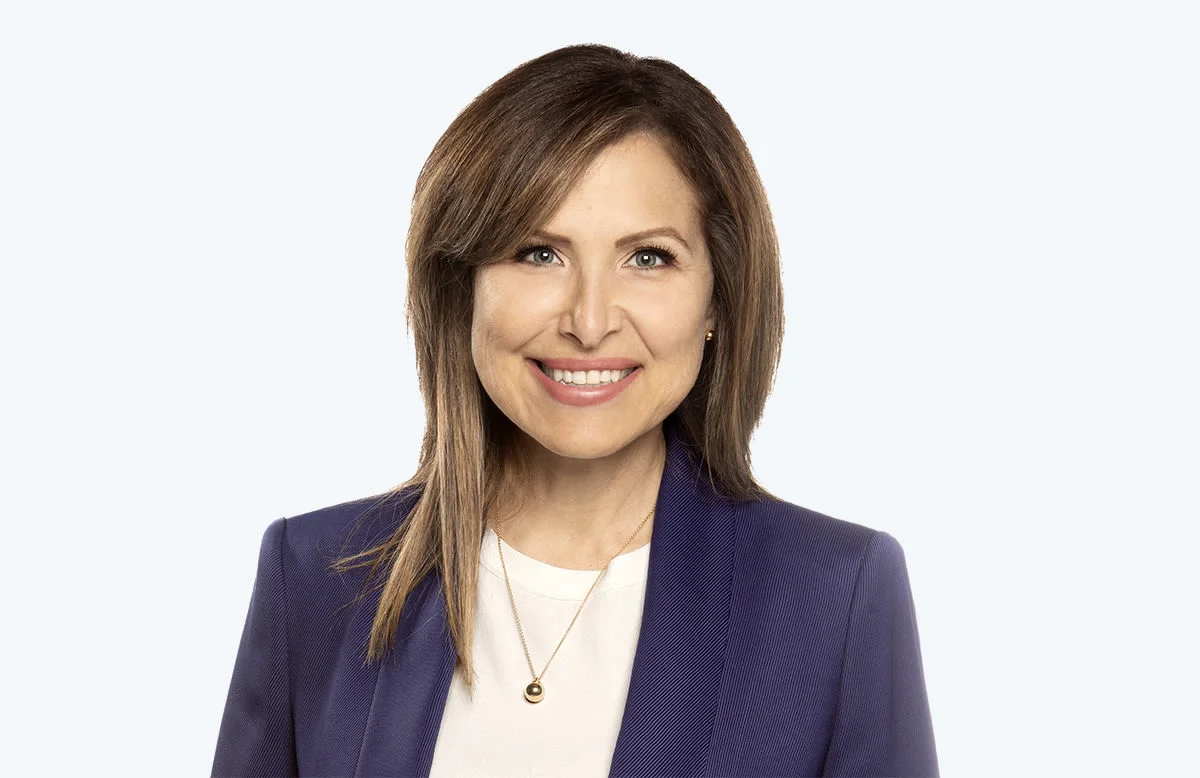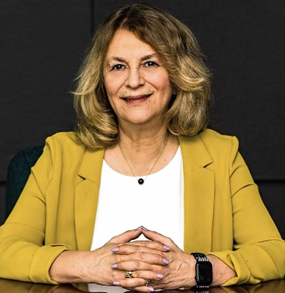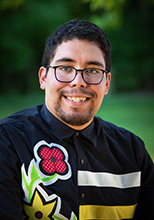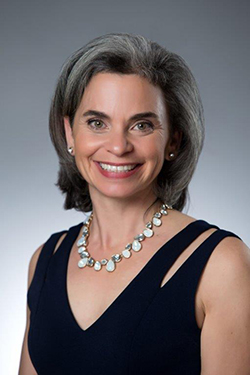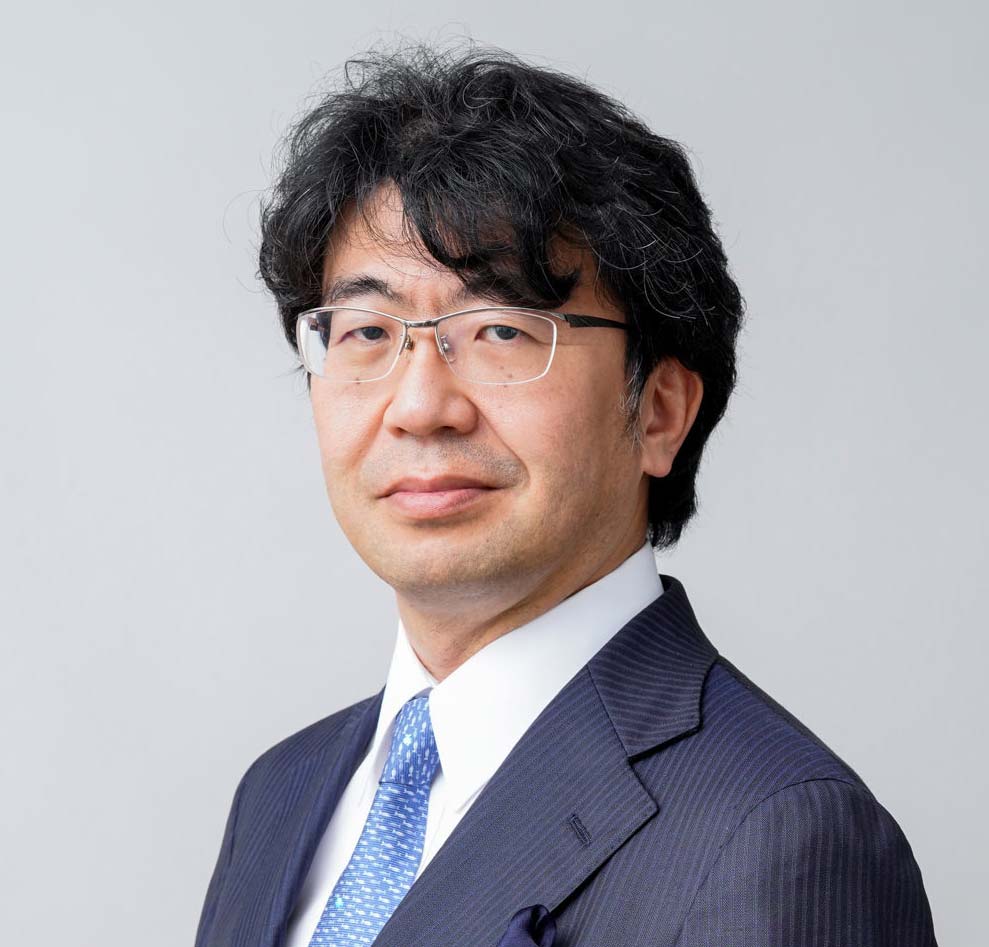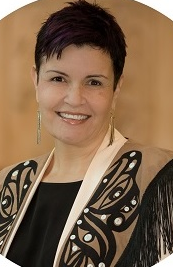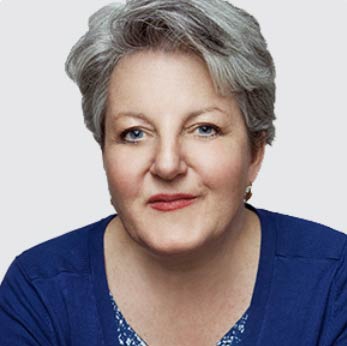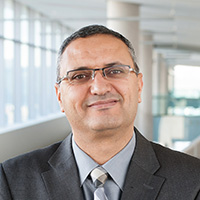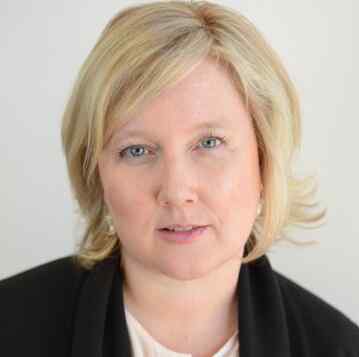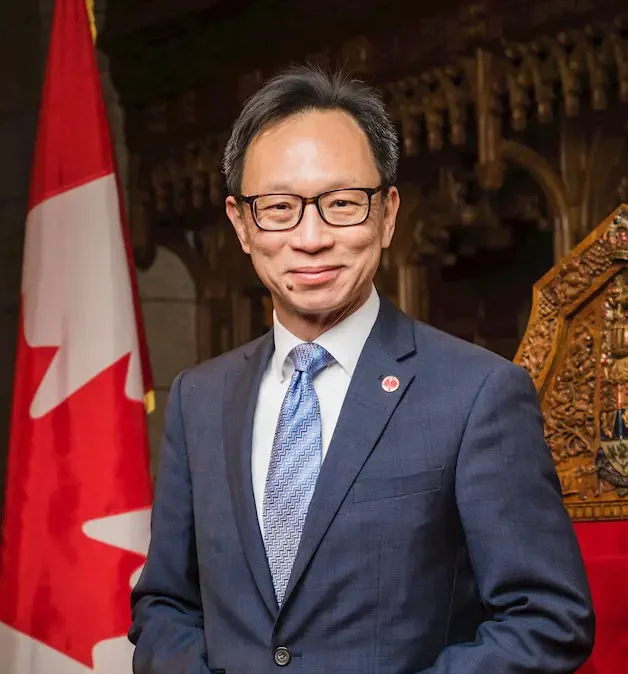Bridging Divides: Turf, Trust & Truth
VICTORIA FORUM 2022
Bridging Divides: Turf, Trust & Truth
VICTORIA FORUM 2022
The theme of Victoria Forum 2022 centered on “Bridging Divides: Turf, Truth and Trust.” A blend of plenary sessions and roundtable discussions facilitated an exploration of how our world has become fragmented along various economic, social and environmental lines, with a focus on identifying methods to bridge these divisions. The Victoria Forum 2022 brought together experts to address the growing divisions in the world along economic, social and environmental lines and find ways to bridge these divides.
More than 500 participants and guest speakers proposed ways to promote trust and honesty, addressing inequality, combatting climate change and fostering societal trust and transformation. Proposed strategies included advocating humility, dignity, Indigenous sovereignty and self-determination, promoting sports and cultural activities, extending social protection, bridging the digital divide, empowering marginalized communities, incorporating expert perspectives and addressing domestic inequalities.
Themes
Turf
Turf
Trust
Trust
Truth
Truth
Highlights
Lək̓ʷəŋən Sport Declaration on Truth, Reconciliation and Partnership
The Commonwealth Games Federation (CGF) has created a working group on the Commonwealth Sport Declaration on Truth, Reconciliation and Partnership with Indigenous Peoples, which was welcomed through a traditional ceremony at the Victoria Forum. A special paddle designed by Darlene Gait of Esquimalt Nation and carved and painted by a team of carvers led by Carey Newman was commissioned to symbolize the declaration. Each country and institution ratifying the declaration will receive a paddle as a gift and by accepting it, they commit to the principles and actions of the declaration. The design, titled “Conquest (Wolf Design),” represents unity, family, and protection and was created with pride for Indigenous athletes in Canada and beyond, making it the first Indigenous declaration for sports.
Speakers
-
Amr Addas
Strategic Advisor for Sustainability Concordia UniversityAmr Addas is the Strategic Advisor for Sustainability and an Adjunct at the John Molson School of Business, Concordia University. He is also the Director of the Van Berkom Investment Management Program. Amr leads Concordia’s Sustainable Investing Practicum in collaboration with Manulife. He is also the lead faculty member for the Sustainable Investment Professional Certificate (SIPC) offered by the John Molson Executive Centre. Amr has taught at McGill University, Queen’s University’s Smith School of Business, and Sherbrooke University.
In addition to his academic work, Amr offers consulting services to investment professionals and sustainable investment training to corporate clients and financial institutions. He also volunteers his time on several advisory boards and industry working groups.
Amr obtained his MBA from the University of Michigan at Ann Arbor in 1995 and his B.Sc. in Mechanical Engineering from the American University in Cairo in 1991.
-

Honourable Janet Austin
Lieutenant Governor of British ColumbiaThe Honourable Janet Austin was sworn-in as the 30th Lieutenant Governor of British Columbia on April 24, 2018. Prior to this appointment, she spent 15 years as Chief Executive Officer of YWCA Metro Vancouver, one of the province’s largest and most diversified non-profits. There she oversaw operations delivering services to tens of thousands of people annually at more than 40 locations.
Raised in Alberta, Her Honour spent her early career in public sector roles in Calgary, working in regional planning and public consultation and communications for the provincial government. She eventually moved to British Columbia, where she began working with BC Housing and discovered her passion and aptitude for public office. Prior to joining the YWCA, Her Honour served as Executive Director of Big Sisters of BC Lower Mainland, and actively volunteered for many organizations in commitment to helping improve the lives of others, as well as serving on various boards ranging from Translink to the Women’s Health Research Institute.
Her Honour is Chancellor of the Order of British Columbia and was invested as a Member of the Order in 2016. As Lieutenant Governor, she has identified three key themes for her mandate: the promotion of diversity and inclusion, democracy and civic engagement, and Reconciliation.
-
Anne-Catherine Bajard
Executive Director British Columbia Council for International Cooperation (BCCIC)Anne-Catherine joined BCCIC in the position of Executive Director in May 2021. She comes from a background of activism and alliance with feminist, intersectional, indigenous and community development movements in Latin America, West Africa and Canada. She has accrued over twenty years of experience leading programs for Oxfam International, Crossroads International, International Media Support, and BC’s Justice Education Society, among others. She has further managed university international cooperation projects at the University of Victoria.
Anne-Catherine’s journey began as a youth activist and continues as such, with an ever-increasing commitment to intergenerational and intersectional approaches. She believes in continuous learning and credits the Indigenous Peoples of the Amazon, the domestic workers’ movement of Bolivia, the youths of Liberia and community economic development initiatives in Western Canada for helping shape her vision.
Anne-Catherine is a long-time member of BCCIC and was a member of the Board in earlier years in representation of Crossroads International. She was a founding member of the Canadian Community Economic Development Network’s International Committee. She is committed to the development of local and global partnerships and alliances and recently applied this to her work on Oxfam’s Knowledge for Impact Team.
-

Elizabeth Borycki
Professor of Health Information Science University of VictoriaDr. Elizabeth Borycki is a Professor in the School of Health Information Science at the University of Victoria. She is the Director of the Social Dimensions of Health and the Director of the Health and Society programs in the Office of Interdisciplinary Studies. Elizabeth received her PhD from the Department of Health Policy, Management and Evaluation at the University of Toronto, a Masters degree from the University of Manitoba in geriatrics and community health nursing and an Honours Bachelor of Science in Nursing from Lakehead University. Elizabeth joined the University of Victoria over 10 years ago. Prior to coming to the University of Victoria, she spent over 15 years working in health care in varying roles in chronic disease management, geriatrics, case management, clinical informatics as well as health information technology design and implementation management. She has published over 150 articles, book chapters and books in health and health informatics.
Elizabeth has served as Academic Representative for Canada for Canada’s Health Informatics Association (2007-2013), Vice President representing North America on the Board of Directors for the International Medical Informatics Association (IMIA) (2010–2013). She founded the International Medical Informatics Association Working Group focusing on Health Informatics for Patient Safety and she is currently the Scientific Program Committee Co-Chair for Medinfo 2017. Elizabeth returns to the Board of Directors of IMIA in August of 2016 as Vice President – Special Projects.
-
Alicia Dubois
Chief Investment Officer Boann Social ImpactAlicia is an accomplished leader with pan-Canadian experience building markets and organizations with a focus on inclusive economic growth with shared outcomes, purpose-driven community engagement, and access to capital for marginalized peoples and sectors.
Driven by her background and lived experience, Alicia’s focus has been on advancing Indigenous Peoples and communities, and engaging and co-creating solutions with diverse sectors of society and the economy as a means to driving understanding, equality and alignment. She served as CEO of the Royal BC Museum, Alberta’s Indigenous Opportunities Corporation, and Vice President, Indigenous Markets at CIBC.She is also the co-creator and co-founder of the Indigenous Leadership Circle (ILC), a national application-based initiative that now boasts over 60 members and is welcoming its third cohort of young Indigenous professionals, with a focus on mentorship and advancing connection and social capital for young Indigenous leaders across Canada.
As the Chief Investment Officer, Alicia will oversee the investment and market development strategies for Boann Social Impact. She will also lead the development of Boann Impact Capital, a fund being developed for private and institutional investment in social impact.
-

Mathew Fleury
Manager of Research and Knowledge Exchange First Nations Health AuthorityMathew Fleury (he/his) is a bilingual (English and French) Indigenous Social Worker, community-based researcher, and public health professional. Mathew is nēhiyawak (Plains Cree), and as a proud member of one of the founding families of the Métis Nation, he has deep roots in the Red River Valley of Manitoba. Throughout his work, he draws from his lived, academic, and professional experiences in advancing grassroots approaches within research and policy. Mathew is passionate about issues impacting Indigenous Peoples, including harm reduction, mental health, and accessibility. He has also continued to promote the inclusion of those who, like him, have faced marginalization. With lived and living experiences and as a queer Two-Spirited individual, Mathew occupies the intersection between innovative advocacy, meaningful community engagement, and transformative legislation. His unwavering passion for human rights and culture has earned him a new name, proffered by Elders in his community: Gimewan Niimi (Rain Dancer). Buoyed by a vision for inclusive and impactful experiences that find ground in the teachings of the Cree and Michif peoples, Mathew seeks to continue to stand as a paragon of diversity and resilience, sowing the seeds of Indigenization, resurgence, and decolonization for generations to come.
Following studies in Psychology at Queen’s University, Mathew graduated from Laurentian University’s Indigenous Social Work program. He is completing studies at the Edinburgh Medical School: Molecular, Genetic and Population Health Sciences, alongside the World Health Organization’s (WHO) Collaborating Centre for Population Health Research and Training. Mathew was previously the Housing Manager for the Culturally Supportive House with the Aboriginal Coalition to End Homelessness. Here, he actively contributed to developing one of Canada’s first Indigenous Alcohol Harm Reduction programs. Moreover, he has experience in research and project coordination, management, academic support and grant writing in academic institutions, the Canada Research Chairs Program, and beyond. In 2019, Mathew was named a 3M National Student Fellow by 3M Canada, and that same year, he was recognized as a Youth Accessibility Leader by the Government of Canada. For these accomplishments, among others, Mathew has become highly sought after during his 9+ years of experience across research and human service delivery systems due to his strong background in trauma-informed approaches, anti-racism, and cultural safety and humility. In 2021, he was promoted from the Indigenous Harm Reduction Community Coordinator at the First Nations Health Authority (FNHA) to Manager, Research and Knowledge Exchange. In addition, Mathew is an Adjunct Professor in the Faculty of Health Sciences at Simon Fraser University.
Areas of Expertise: Disability Studies; Accessibility; 2SLGBTQIA+ Health; Métis-specific Health; Social Determinants of Health among Indigenous Populations; Substance Use and Harm Reduction; COVID-19 and Indigenous Communities; Indigenous Public Health Sovereignty; Equity, Diversity, and Human Rights; Autism; ADHD; Community Health/Public Health; Health Promotion; Identity Building; Indigenous Health and Wellbeing; Mental Health and Society; Community-Based Participatory Research; Social Determinants of Health; Social Determinants of Infectious and Immune-Mediated Diseases; Indigenous Homelessness; Anti-Racism, and Cultural Safety and Humility; and, HIV/AIDS and STBBI Community-Based Research.
-
Stephen Flynn
Founding Director Northeastern UniversityDr. Stephen Flynn is the Founding Director of the Global Resilience Institute at Northeastern University where he leads a major university-wide research initiative to inform and advance societal resilience in the face of growing human-made and naturally-occurring turbulence. At Northeastern, he is also Professor of Political Science with faculty affiliations in the Department of Civil and Environmental Engineering and the School of Public Policy & Urban Affairs.
Dr. Flynn is recognized as one of the world’s leading experts on critical infrastructure and supply chain security and resilience. He is co-author of the textbook, Critical Infrastructures Resilience: Policy and Engineering Principles (Routledge, 2018) and has led teams in conducting post-disaster infrastructure resilience assessments, initially with support from the Alfred P. Sloan Foundation, and then from the U.S. Department of Homeland Security. In 2014, Flynn was appointed by the Secretary of Homeland Security to serve as a member of the Homeland Security Science and Technology Advisory Council (HSSTAC). He also serves as chair of the Massachusetts Port Authority (Massport) Security Advisory Committee. Additionally, he holds research affiliations with the Wharton School’s Risk Management and Decision Processes Center, and the Earth Institute at Columbia University. He previously served as Founding Co-Director of the George J. Kostas Research Institute for Homeland Security at Northeastern University. Dr. Flynn is also the principal for Stephen E. Flynn Associates LLC, where he provides independent advisory services on improving critical infrastructure security and resilience.
Before joining the faculty at Northeastern University in 2011, Dr. Flynn served as President of the Center for National Policy. Prior to that he spent a decade as a senior fellow for National Security Studies at the Council on Foreign Relations.
Prior to September 11, 2001, Dr. Flynn served as an expert advisor to U.S. Commission on National Security (Hart-Rudman Commission), and following the 9/11 attacks he was the executive director of a blue-ribbon Council on Foreign Relations homeland security task force, again co-led by former Senators Gary Hart and Warren Rudman. He served as the principal advisor to the bipartisan Congressional Port Security Caucus, advised the Bush Administration on maritime and homeland security issues, and after the November 2008 election of President Barack Obama, served as the lead policy advisor on homeland security as a part of the presidential transition team. From 2003-2010 he served as a member of the National Research Council’s Marine Board.
Dr. Flynn has presented expert congressional testimony before the U.S. Senate and U.S. House of Representatives on 31 occasions. He has delivered keynote addresses at more than one hundred international and national conferences. Dr. Flynn is a frequent media commentator and has appeared on Meet the Press, 60 Minutes, The News Hour, The Today Show, the Charlie Rose Show, CNN and on National Public Radio. He has written two of the most widely-cited books on homeland security: The Edge of Disaster: Rebuilding a Resilient Nation (Random House, 2007) and America the Vulnerable (HarperCollins 2004). Five of his articles have been published in the prestigious journal, Foreign Affairs. Excerpts of his books have been featured in Time, as the cover story for U.S. News & World Report, and as the subject of two CNN documentaries.
A 1982 graduate of the U.S. Coast Guard Academy, Dr. Flynn served in the Coast Guard on active duty for 20 years, including two tours as commanding officer at sea. As a Coast Guard officer, he served in the White House Military Office during the George H.W. Bush administration and as a director for Global Issues on the National Security Council staff during the Clinton administration. He was a Guest Scholar in the Foreign Policy Studies Program at the Brookings Institution from 1991-92, and in 1993-94 he was an Annenberg Scholar-in-Residence at the University of Pennsylvania. He received the M.A.L.D. and Ph.D. degrees from the Fletcher School of Law and Diplomacy, Tufts University, in 1990 and 1991 and in 2009, he received an honorary doctorate of laws from Monmouth University.
-
Dallas Gislason
Interim CEO South Island Prosperity PartnershipDallas Gislason has played instrumental roles in many industry-leading economic development projects in Canada, the USA, and overseas over the past 15 years. He has served on several boards, including Business Retention and Expansion International, the International Council on National Youth Policy, Junior Achievement of Saskatchewan and the Greater Victoria Placemaking Network. He currently sits on the advisory board of the Camosun Technology Access Centre.
Dallas is the youngest-ever recipient of the Premier of Saskatchewan’s Award of Excellence in Leadership. Before joining SIPP, Dallas was the Economic Development Officer for the Greater Victoria Development Agency, the precursor of the SIPP model here in B.C.’s Capital Region.
-
Kristi Govella
Deputy Director German Marshall FundDr. Kristi Govella is deputy director of the Asia Program and senior fellow at The German Marshall Fund of the United States (GMF). Kristi is an expert on the intersection between economic and security policy in Asia, as well as on Japanese politics and foreign policy. Her research has examined topics such as economic statecraft, trade war, trade agreements, foreign investment, government-business relations, defense capacity building, regional institutional architecture, and the governance of the global commons. In addition to her publications in journals and edited volumes, Kristi has edited two books: Linking Trade and Security: Evolving Institutions in Asia, Europe, and the United States and Responding to a Resurgent Russia: Russian Policy and Responses from the European Union and the United States. She regularly provides commentary for U.S. and international media outlets. She also serves as an adjunct fellow with the East-West Center and Pacific Forum and as co-editor of the journal Asia Policy. Prior to joining GMF, Kristi was an assistant professor at the University of Hawaii at Manoa, a postdoctoral fellow at Harvard University, and an associate professor at the Daniel K. Inouye Asia-Pacific Center for Security Studies. She has also been a visiting research fellow at the University of Tokyo and Waseda University. Kristi holds a Ph.D. and an M.A. in political science from the University of California, Berkeley and a B.A. in political science and Japanese from the University of Washington, Seattle.
-

Danny Graham
Chief Engagement Officer Engage Nova ScotiaOver a thirty-year period, Danny Graham has held senior positions in business, law, government, and politics.
For 10 years he was the Chief Negotiator on Aboriginal Rights for the Province of Nova Scotia. He is credited with starting the Nova Scotia Restorative Justice Program and has worked to advance justice reforms with the United Nations and countries spanning four continents. He has been recognized by organizations throughout Atlantic Canada for his community and public service.
He is currently the Chief Engagement Officer for Engage Nova Scotia – an independent non-profit that is leading the Nova Scotia Quality of Life Initiative, with an extensive network of partners from the public, private, academic and community sectors – provincially, nationally, and internationally. In 2019 almost 13,000 Nova Scotians responded to a 230-question survey administered by Engage NS in cooperation with the Canadian Index of Wellbeing. With Dalhousie University, they have developed pioneering tools to extract the findings of the survey in real time across demographic and neighbourhood profiles. Partners in all three levels of government, are considering the findings of the survey and the use of the tools to catalyse new action, inform policy decisions and shape the narrative about how to build a successful society.
-
Dr. Adel Guitouni
Professor, Gustavson School of Business Director of ProgramsAdel Guitouni is an award-winning associate professor of management sciences, operations research and decision support systems at the Gustavson School of Business. His PhD and master-level students benefit from his multi-disciplinary approach to teaching and professional activities, which includes his work with the Canadian government where he directed large scientific teams involved with major events and strategic initiatives such as the Vancouver 2010 Olympics and G8/G20 summits, and a variety of projects with the Canadian Forces.
Since 2011, Adel has actively engaged in several educational activities that support the democratic transition and socio-economic development in the MENA region (i.e., Tunisia and Libya) from providing coaching sessions to senior government officials to obtaining grant funding to develop the country’s leadership capacity. In 2014 in partnership with Tunisian higher education institutions, he established a not-for-profit non-governmental organization dedicated to fostering entrepreneurship development and innovation.
Adel has published numerous refereed papers and book chapters, and is the recipient of several multi-million dollar research grants. On the research side, he has made several contributions to multiple criteria decision aid (MCDA), supply chain management, information systems, resource management and cloud computing. His research interests include the automation of planning and scheduling, net-enabled dynamic resource management and supply chain management, classification and machine learning, multiple criteria decision analysis, multi-objective optimization, collaborative decision making and decision support systems.
Through his research Adel’s goal is to help improve the decision-making process at the individual and corporate level. Through his entrepreneurship and leadership project work, he hopes to empower youth and leaders by giving them the tools to change their world.
-
Lisa Helps
Executive Lead BC Builds’ Project Origination and Process Innovation InitiativeAs a community leader, Lisa Helps leaves a legacy that goes beyond the confines of city hall. Prior to entering politics, Helps worked with community members to create a not-for-profit micro-lending organization assisting small businesses to get on their feet.
As a civic leader, she recognized that running a growing city meant looking toward the future. While serving as mayor of Victoria between 2014 and 2022, Helps championed sustainable and accessible transit options, expansion of the city’s cycling infrastructure, improvement of climate readiness, support for community development and a commitment to Reconciliation. Her council also laid the groundwork for the creation of an Arts and Innovation District in Victoria.
Working closely with other municipal leaders and community stakeholders, including UVic, her collaborative approach advanced work on the region’s pressing housing challenges including climate change, housing and inclusivity.
Helps was recently appointed as a Housing Solutions Advisor to Premier David Eby to help develop BC Builds, a program to increase affordable housing supply for middle-income earners in BC.
-
Van Jackson
Political Scientist University of WellingtonDr. Van Jackson is an American political scientist, futurist, and media pundit specializing in Asian security and the politics of US foreign policy. He is a Senior Lecturer in International Relations at Victoria University of Wellington, and concurrently holds think tank appointments as a Distinguished Fellow at the Asia Pacific Foundation of Canada, as the Defence & Strategy Fellow at the Centre for Strategic Studies in Wellington, New Zealand, and as a Senior Fellow in the Asia-Pacific Leadership Network for Nuclear Non-Proliferation & Disarmament. Van’s first book, with Cambridge University Press, was Rival Reputations: Coercion and Credibility in U.S.-North Korea Relations (2016). His second book, also with Cambridge University Press, is On the Brink: Trump, Kim and the Threat of Nuclear War (2018). While writing On the Brink, Van kept a diary about its writing process that was published every day at War on the Rocks, called Nuke Your Darlings. In 2021, Van began writing regularly for the Duck of Minerva. In 2019, Van was featured in the Washington Diplomat’s “People of World Influence” series. He is currently engaged in two major research projects—one examining the implications of progressivism for grand strategy, and the other a critical scrutiny of America’s paradoxical role in both sustaining and risking the “Asian peace.” Although long affiliated with the Center for a New American Security in various capacities, he has no relationship to it whatsoever since 2021.
Van is the host of The Un-Diplomatic Podcast, and previously hosted the acclaimed show Pacific Pundit. From 2015 through April 2017, he was an Associate Professor in the College of Security Studies at the Daniel K. Inouye Asia-Pacific Center for Security Studies (APCSS) in Honolulu. From 2014 through September 2015, Van was a Council on Foreign Relations International Affairs Fellow in residence at the Center for a New American Security, researching the intersection of Asian security and defense strategy. He has testified before the House Committee on Foreign Affairs, Subcommittee on Asia and the Pacific, and is a frequent commentator in popular media and policy outlets.
From 2009 to 2014, Van held positions in the Office of the Secretary of Defense (OSD) as a strategist and policy adviser focused on the Asia-Pacific, senior country director for Korea, and working group chair of the U.S.–Republic of Korea Extended Deterrence Policy Committee.
During his time in OSD, Van’s responsibilities ranged from long-range strategy, policy planning, and studies of military innovation to crisis management and direct negotiations with numerous Asian government ministries. He was a contributor to the 2013 Strategic Choices Management Review, the 2014 Quadrennial Defense Review, and OSD’s implementation of the U.S. policy of rebalancing to the Asia-Pacific. He was also part of the DoD working group that established the Department’s positions on autonomy in weapons systems (DoD Directive 3000.09). From 2009 to 2012, Van advised the White House and Secretary of Defense on crisis management and strategic courses of action through two Korean Peninsula crises, represented the Department in direct negotiations with North Korea addressing its nuclear program, and helped establish the first extended deterrence consultation mechanisms with South Korea and Japan. He is the recipient of multiple awards in OSD, including the Exceptional Civilian Service Medal.
Van previously taught courses on Asian security, grand strategy, and bridging the theory-policy divide at Georgetown University, Hawaii Pacific University, and the Catholic University of America, and has been a rotating lecturer in the Naval Postgraduate School’s Regional Security Education Program. In 2014, Van was also appointed as a Track II adviser to the Alliance Vision Group headed by the State Department’s Office of Policy Planning and South Korea’s Ministry of Foreign Affairs. He has delivered guest lectures at a number of schools globally, including Stanford University, Harvard University, Syracuse University, Hankuk University of Foreign Studies, Ritsumeikan University, the U.S. National War College, the U.S. Naval War College, and the Johns Hopkins University School of Advanced International Studies. From 2011 to 2013, Van was also a non-resident James A. Kelly Fellow in Korean Studies with the Pacific Forum at the Center for Strategic & International Studies. He has published widely in academic journals, including Security Studies, Journal of Strategic Studies, International Studies Review, European Journal of International Security, Foreign Policy Analysis, Journal of Global Security Studies, International Relations of the Asia-Pacific, Journal for Peace and Nuclear Disarmament, Survival, Naval War College Review, Asia Policy, Asian Security, Comparative Strategy, and Contemporary Security Policy. His commentary and policy analysis has appeared in the Washington Post, POLITICO Magazine, The Atlantic, Foreign Affairs, Foreign Policy, The Hill, Axios, Far Eastern Economic Review, War on the Rocks, The Interpreter, Real Clear Defense, The Spinoff, and The Diplomat, among others. He holds a PhD in world politics from the Catholic University of America and was formerly selected as one of the “Top 99 under 33” foreign policy leaders by Diplomatic Courier magazine. Van started his career in the U.S. Air Force as a Korean linguist and intelligence analyst, and was an honors graduate from the Defense Language Institute in Monterey, CA.
-

Matthew Jenkins
Policy and Campaigns Coordinator Leeds UniversityDr. Matthew Jenkins (Ph.D., Cardiff) [He/Him] is the Policy and Campaigns Coordinator at Leeds University Union in Leeds, England. His day-to-day work centres around the successful delivery of a variety of democratic processes at the union and supporting student-led campaigns at a local, regional, and national level. He is especially involved in sortition-based decision-making at the ‘LUU Better Forums’ and the training of student campaigners in campaign coordination, strategy, and planning. Around this he also works on several long-term democracy improvement and empowerment projects; from ensuring democratic representation of marginalised voices at the union, to improving the transparency and accountability of internal policy implementation procedures. He is currently working to ensure that student-led policy is implemented more consistently in a way which treats students as experts in the future of their union.
Prior to taking up this post, he completed a Ph.D. in the philosophy of science at Cardiff University working on structural analyses of replication failures and the role of theory in designing highly replicable experiments. He was examined by Prof. Alessandra Tanesini and Dist. Prof. Edouard Machery. His research prepared him for the complexities of implementing and supporting policy and teaching prepared him to engage enthusiastically with students’ wildcard ideas!
-

Suzannah Kelly
Director of Communications BC Infrastructure Benefits (BCIB)Suzannah Kelly is the Director of Communications for BC Infrastructure Benefits (BCIB). She works with the executive team to help grow and diversify BC’s skilled labour force. Suzannah came to BCIB from the Province of B.C.’s Government Communications and Public Engagement agency, where she worked with the Ministry of Social Development and Poverty Reduction, the Ministry of Environment and Climate Change Strategy, and, most recently, with the digital communications team during the first year of the pandemic, moderating the Province’s livestreams. Suzannah has also worked in the post-secondary sector and in factual television production. She started her career as a journalist, working in radio, TV and print. Throughout her career, Suzannah has used storytelling to inform and, ideally, inspire. She is a graduate of the University of Victoria where she studied English Literature, and the British Columbia Institute of Technology where she studied broadcast journalism.
-

Andre Kushniruk
Director and Professor of the School of Health Information Science University of VictoriaDr. Andre Kushniruk is Director and Professor of the School of Health Information Science at the University of Victoria. Dr. Kushniruk conducts research in a number of areas including evaluation of the effects of technology, human-computer interaction in health care and other domains as well as cognitive science. His work is known internationally and he has published widely in the area of health informatics. He focuses on developing new methods for the evaluation of information technology and studying human-computer interaction in health care and he has been a key researcher on a number of national and international collaborative projects.
His work includes the development of novel methods for conducting video analysis of computer users and he is currently extending this research to remote study of e-health applications and advanced information technologies, including computerized patient record systems. Dr. Kushniruk has held academic positions at a number of Canadian universities and he has taught courses in areas such as human-computer interaction, database management and systems analysis and design. He holds undergraduate degrees in Psychology and Biology, as well as a M.Sc. in Computer Science and a Ph.D. in Cognitive Psychology from McGill University.
-

Dr. Wilton Littlechild
Former Chief Confederacy of Treaty Six First NationsWilton Littlechild, Ph.D., is a Cree chief, residential school survivor, and lawyer who has worked both nationally and internationally including with the United Nations to advance Indigenous rights and Treaties. He has also – through leadership with the Truth and Reconciliation Commission – raised awareness of former Canadian policies that decimated the livelihood and culture of Indigenous Canadians.
Born in Alberta, Wilton Littlechild was raised largely at residential schools from 1951 to 1964, where he spent 14 years surviving through study and sport. After leaving residential school, he studied physical education at the University of Alberta and law at the University of New Mexico, where he continued his balance of academics and hockey.
Chief Littlechild was a member of the 1977 Indigenous delegation to the United Nations (UN), and worked on the UN Declaration on the Rights of Indigenous Peoples. He organized within the UN to increase Indigenous input in the economic and social issues the UN tackles. In the 1980s, he worked on the lawsuit to prevent patriation of the Canadian Constitution until the Aboriginal and Treaty Rights were protected and, in more recent years, has been a regional and International Chief on Treaties No. 6, 7, 8.
Chief Littlechild has been a member of parliament, Vice-President of the Indigenous Parliament of the Americas, North American representative to the UN Permanent Forum on Indigenous Issues, and a chairperson for the UN Expert Mechanism on the Rights of Indigenous Peoples and the Commission on First Nations and Métis Peoples and Justice Reform.
In addition to his ongoing work with the Truth and Reconciliation Commission, he’s continued to run his own law firm in Erminiskin Reserve, Alberta, and maintains his commitment to sport. He has been inducted into seven Sports Halls of Fame.
He has been awarded the Order of Canada and in 1993, the Canadian government awarded Chief Littlechild the Canada 125 Medal. He is a 2015 Laureate of the Indspire Awards and was recently honoured with the Alberta Award of Excellence.
-
Dr. Basma Majerbi
Associate Professor Impact Investing Hub, Gustavson School of Business, University of VictoriaDr. Majerbi is an associate professor of finance at Gustavson School of Business, University of Victoria. Her research interests include international finance, ESG and impact investing, and climate-related financial risks and opportunities. Her teaching integrates sustainable finance topics into core finance courses in various programs including the MBA in Sustainable Innovation. She is a recipient of multiple awards including Research Excellence, Best MBA Professor, Innovation Award, Service Excellence, IAB Community Engagement Award and the BC Cleantech Educator Award.
Basma is founder and director of the Impact Investing, a research and education center whose mission is to accelerate investments in climate solutions and help companies and investors align with the sustainable development goals (SDGs), through education and capacity building, collaborative research, and stakeholder engagement. She is co-founder and co-chair of the International Workshop on Financial System Architecture and Stability (IWFSAS), an annual conference focused on sustainable finance and climate-related finance research topics.
Basma is also a technical advisor with the International Monetary Fund’s Institute for Capacity Development where she contributes to training of government officials in developing countries on topics related to financial development, financial inclusion, and other financial sector issues. She is a member of the ESG Advisory Council to the BC Minister of Jobs, Economic Development and Innovation which leads the BC ESG Centre of Excellence, a founding member of the Canadian Sustainable Finance Network (CSFN) and serves on its Steering Committee, and a member of the Research Advisory Council of the Institute for Sustainable Finance. Basma also serves on the boards of multiple organizations, including the board of directors of the South Island Prosperity Partnership, the Advisory Board of the Center for Ocean Applied Sustainable Technologies (COAST), the Impact Investment Committee of the Victoria Foundation and the Research Advisory Group of New Power Labs.
Basma holds a PhD in Finance from McGill University and a MSc in International Finance from HEC Montreal.
-
Yonah Martin
Senator Senate of CanadaThe Honourable Yonah Martin (born April 11, 1965) is a Conservative Senator from British Columbia, appointed by The Right Hon. Stephen Harper in 2009. She is the first Canadian of Korean descent to serve in the Senate of Canada and the first Korean-Canadian parliamentarian in Canadian history.
Senator Martin is currently the Deputy Leader of the Opposition in the Senate (since November 2015). She previously served as the Deputy Leader of the Government in the Senate (2013-2015); and as the Deputy Whip of the Government (2011-2013). She has been Co-Chair of the Canada Korea Inter-Parliamentary Group since 2009; and Chairs or serves on the Executive of various interparliamentary groups. In November 2015, she co-founded International Parliamentary Coalition for Victims of Sexual Slavery (IPCVSS), and currently serves as Co-Chair of Canada.
Her notable achievements as a Senator to date include the enactment of her Senate Public Bill – Korean War Veterans Day Act (June 2013); the successful campaign to add TCM and Acupuncturists to the schedule of health professionals for GST/HST exemption (April 2014); and the conclusion of a multi-year negotiation process and implementation of the historic Canada Korea FTA (January 2016).
Born in Seoul, South Korea, Yonah Martin immigrated to Canada in 1972, and resided in Metro-Vancouver ever since. She earned a Bachelor of Education in 1987 from University of British Columbia and had a 21-year teaching career (1987-2008) until her appointment to the Senate. She earned a Master of Education in Curriculum and Instruction in 1996. She later co-founded C3 Korean Canadian Society, a non-profit organization that aims to “bridge communities”. Currently, she serves as Honorary Patron of C3, in addition to serving on several regional, national and international Boards and Advisory Councils.
In recognition of her community service in the Tri-Cities region, Yonah Martin was awarded the 2004 Spirit of Community Award for Cultural Harmony. In 2009, she was awarded the Order of Civil Merit Moran Medal by the president of the Republic of Korea for outstanding leadership and work in advancing the rights of overseas Koreans; and in 2012, the Queen Elizabeth II Diamond Jubilee Medal by Governor General David Johnston. In 2014, as part of UBC’s centennial campaign, she was recognized as one of UBC’s top Education 100 Alumni; and in February 2016, she was honoured with the King Clancy Award from the Canadian Foundation for Physically Disabled Persons (CFPDP). Most recently, Yonah Martin was among 100 Canadians to be featured (for 1965, her birth year) in MacLean’s special Canada Day issue of “Canada’s Stories“, to mark the magazine’s 100th anniversary.
She has been married to Doug Martin for over 25 years, and they are proud parents of a daughter, Kiana Mi-Sun.
-
Senator Marilou McPhedran
Senator for ManitobaBorn and raised in rural Manitoba, Canada, called to the Bar of Ontario (1978-2007), named a Member of the Order of Canada (1985) in recognition of her co-leadership in the successful campaign for stronger gender equality protections in the Canadian constitution and appointed to the Senate of Canada by Governor General David Johnston on the recommendation of Prime Minister Justin Trudeau in 2016, Marilou McPhedran is a legally trained advocate and educator who specialized in teaching and developing systemic and sustainable change mechanisms to promote equality and diversity, having co-founded several internationally recognized non-profit Canadian organizations, such as LEAF – the Women’s Legal Education and Action Fund, which has conducted constitutional equality test cases and interventions for 30-plus years, METRAC – the Metropolitan Action Committee on Violence Against Women and Children, and the Gerstein Crisis Centre for homeless discharged psychiatric patients.
She founded the International Women’s Rights Project in 1998 and the Institute for International Women’s Rights at Global College in 2009 – based on her intergenerational models “evidence-based advocacy” and “lived rights”. When Chief Executive Officer of a Federal Centre of Excellence based at York University, Canada, she directed staff and programs that included a cyber research network on women’s health and rights.
She has developed human rights courses online and in the classroom and has chaired three independent inquiries into the sexual abuse of patients (1991-2015), co-investigated and co-authored applied research, including: the first international study to assess impact of the UN Convention on the Elimination of all forms of Discrimination Against Women in ten countries (1998-2000); What about accountability to the patient? (2001), the National Study on Rural, Remote and Northern Women’s Health in Canada (2001-2003); the textbook, Preventing Sexual Abuse: a Legal Guide for Health Care Professionals (2004); a strategy paper for Canada’s ambassador to the UN, Engendering the ‘Responsibility to Protect’ Doctrine (2005); Women’s Constitutional Activism in South Africa and Canada (2009 International Review of Constitutionalism); 28-Helluva Lot to Lose in 27 Days: The Ad Hoc Committee and Women’s Constitutional Activism in the Era of Patriation (2015).
Her authorship includes: the 2006 National Journal of Constitutional Law article, Impact of S.15 equality rights on Canadian society: beacon or laser?; the 2007 Supreme Court Law Review article A Truer Story: Constitutional Trialogue; and the 2014 Michigan State Law Review article, Complements of CEDAW – U.S. foreign policy coherence on women’s human rights and human security.
A pioneer in research and advocacy to promote human rights through systemic reform in law, medicine, education, governance, she chaired the 2006 international Forum on Women’s Activism in Constitutional Reform, held the Ariel F. Sallows Chair in Human Rights at the University of Saskatchewan College of Law, was appointed Chief Commissioner of the Saskatchewan Human Rights Commission in 2007, and was Principal (Dean) of The University of Winnipeg Global College in Manitoba from June 2008 to July 2012, then served as the Human Rights Fellow in the UNFPA Geneva Liaison Office and taught as a Visiting Professor at the UN-mandated University for Peace in Costa Rica in 2012-13.
From 2008 to 2019, she was a tenured full professor at the University of Winnipeg. She was the founding director of the Institute for International Women’s Rights at Global College from 2009 to 2016 and the creator / director of the annual ‘Human Rights UniverCity’ summer institute based at the Canadian Museum for Human Rights from 2011 to 2018.
-

Ovide Mercredi
Former National ChiefOvide Mercredi is a Cree, born in the northern community of Grand Rapids, Manitoba in 1946. He served his community as Chief of Misipawistik Cree Nation from 2005 to 2011 and acted as a councillor for three years after his terms as Chief.
A graduate of the University of Manitoba’s Robson Hall Faculty of Law in 1977, he practiced criminal law and later specialized in constitutional law as an advisor to Manitoba Chiefs. Ovide Mercredi became a national and international leader in advocating for Indigenous peoples’ rights.
In 1989, Ovide was elected Regional Chief of the Assembly of First Nations for Manitoba as well as appointed a member of the Manitoba Human Rights Commission. He became a key strategist for the Assembly during the time of the Meech Lake Accord constitutional reform discussions. Ovide has always advocated for non-violent methods to resolve conflict and he had an active role in negotiations in Oka, Gustafson Lake, Iperrwash and Burnt Church.
On June 12, 1991, Ovide was elected National Chief of the Assembly of First Nations, a role which he held for two terms from 1991 to 1997, where he represented a diverse group of people who embraced differing traditions and at times, represented conflicting interests. During his first term, he led the negotiations for the First Nations in the Charlottetown Accord. In his efforts to find consensus for policies and to foster unity, he spent much of his time traveling across Canada to meet people and to learn firsthand of their difficulties.
He became the first chancellor of Manitoba’s University College of the North in 2007. He was selected in a traditional manner to be the National Spokesperson for Treaties 1 to 11 which he led from 2006 to 2014. For his work as an advocate of non-violent methods for change, he has been nominated by the Government of India for the Gandhi Peace Prize. He served on the board of the Winnipeg Art Gallery and the Heart and Stroke Foundation of Canada.
Among his many honours and awards are; Order of Canada, 2021, the Order of Manitoba in 2005 and honorary degrees from Bishop’s University, St. Mary’s University, Lethbridge University, Athabasca University, the Law Society of Ontario and the University of Manitoba.
Ovide is the author of My Silent Drum a book of poetry and enjoys golfing.
Currently, Ovide is working for Nishnawbe Aski in Northern Ontario on the application of the Declaration of Indigenous Rights as a tool for reform of Canadian laws.
-
Dr. Cheryl Mitchell
Gustavson School of Business, University of VictoriaAs a faculty member at the Peter B. Gustavson School of Business at the University of Victoria, Cheryl Mitchell teaches MBA courses on collaboration, design thinking & innovation, organizational development and consulting. As well she oversees all MBA capstone projects. She is also a principal investigator at the Cardiac Network of Canada (CANet), a National Centre of Excellence (NCE), where she researches multi-stakeholder collaboration in national research networks.
Cheryl Mitchell has worked extensively as a freelance consultant and facilitator in the healthcare industry and public service. Her most recent company, Red Ball Solutions, was founded in 2008 in response to the increasingly complex workplace challenges faced by today’s organizations. Cheryl’s initial focus was on experiential team-building and leadership development. Over the past 15 years, this focus has evolved from engagement and strategic planning, through to identity formation, change management and culture development. Her current concentration is on collaborative design and facilitating solutions in complex systems. She has designed and delivered hundreds of group programs to over thirty five thousand participants.
Cheryl has a PhD in Human and Organizational Systems, where her dissertation research focused on blame in the healthcare system. She has a Master’s degree in Counselling Psychology with an emphasis on Jungian Depth Psychology. She is also a team coach, and is qualified to deliver a wide range of assessments. Her academic interest in blame, group dynamics that impact collaboration and group processes that enhance solution-building, ensures that her professional projects are evidence-based and aligned with current research and literature.
-
Senator Lucie Moncion
Senator for OntarioAfter a distinguished career of more than 38 years in the co-operative financial institutions sector, the last 16 as President and CEO, Lucie Moncion was appointed to the Senate in November 2016. As a representative of Ontario’s francophone community and as part of her parliamentary duties, she works in official languages and the cooperative sector. She is the Chair of the Senate Standing Committee on Internal Economy, Budgets and Administration.
A native of Ottawa, Senator Moncion holds a Bachelor of Business Administration with a specialization in Cooperative Administration from Laurentian University, a Master of Business Administration from the Université de Moncton, and a Corporate Director designation from Laval and McMaster Universities.
She has extensive knowledge of Ontario’s Francophone minority communities, as well as an in-depth understanding of the economy, business climate and Francophone communities in Ontario. She has recognized expertise in the areas of cooperatives and social entrepreneurship.
In addition, she has served on numerous boards of directors. She has served as Chair of the Board of Directors of Cooperatives and Mutuals Canada, Chair of the Audit and Governance Committees of TFO Media Group, Chair of the Circuit Champlain Working Group and Chair of the Coalition of Credit Unions and Caisses Populaires. She has also served as Vice-Chair of the Board of Governors of Nipissing University, and as a member of the Board of Directors of Collège Boréal.
She is the mother of three children and grandmother of four grandchildren and lives with her husband Yvon in North Bay, Northern Ontario.
-

Sudhir Nair
Associate Professor University of VictoriaDr. Sudhir Nair is an Associate Professor of International Business and Strategy in the Gustavson School of Business at the University of Victoria. His research covers various facets of international business including drivers of international entrepreneurship and the internationalization of service firms. His commitment to engaged student learning has earned him the Gustavson School of Business’s Teaching Award. More recently, he has been researching the newcomer (immigrant and refugee) space in Canada from an interdisciplinary perspective. Externally, he engages with the local community in Victoria as a member of the Advisory Committee of the Community Partnership Network, which is facilitated by the Inter Cultural Association of Greater Victoria. He also represents UVic in a team that is jointly developing a Prosperity Index for the Greater Victoria region, with the South Island Prosperity Partnership (they arefunded by local municipalities). Prior to pursuing his PhD, Sudhir spent 15 years working in large corporations such as Citibank, as well as with entrepreneurial entities that he founded or co-founded.
-
Shaheen Nanji
Executive Director SFU International, Simon Fraser UniversityShaheen Nanji (MA, International Studies) is the Executive Director, SFU International at Simon Fraser University and is responsible for the collaborative development and implementation of the University’s international engagement.
As a convener and facilitator of partnerships, engagement and dialogue on global issues, she is committed to collaboration between diverse disciplines, sectors, cultures, perspectives and interests for deeper impact. Her areas of work have included international development; the Sustainable Development Goals; refugees and migration; equity, diversity and inclusion; education; and diaspora. She serves on the Boards of Academics Without Borders and the Proteknon Foundation for Innovation and Learning. She is also an Associate of the SFU Centre for Dialogue.
-
Senator Kim Pate
Senator for OntarioKim Pate was appointed to the Senate of Canada on November 10, 2016. First and foremost, the mother of Michael and Madison, she is also a nationally renowned advocate who has spent the last 45+ years working in and around the legal and penal systems of Canada, with and on behalf of some of the most marginalized, victimized, criminalized and institutionalized — particularly imprisoned youth, men and women.
Senator Pate graduated from Dalhousie Law School in 1984 with honours in the Clinical Law Programme and has completed post graduate work in the area of forensic mental health. She was the Executive Director of the Canadian Association of Elizabeth Fry Societies (CAEFS) from January 1992 until her appointment to the Senate in November 2016. CAEFS is a federation of local societies who provide services and work in coalition with Aboriginal women, women with mental health issues and other disabling conditions, young women, visible minority and immigrant women, poor women and those isolated and otherwise deprived of potential sources of support. Prior to her work with CAEFS, she worked with youth and men in a number of capacities with the local John Howard Society in Calgary, as well as the national office. She has developed and taught Prison Law, Human Rights and Social Justice and Defending Battered Women on Trial courses at the Faculties of Law at the University of Ottawa, Dalhousie University and the University of Saskatchewan. She also occupied the Sallows Chair in Human Rights at the University of Saskatchewan College of Law in 2014 and 2015.
Kim Pate is widely credited as the driving force behind the Inquiry into Certain Events at the Prison for Women in Kingston, headed by Justice Louise Arbour. During the Inquiry, she supported women as they aired their experiences and was a critical resource and witness in the Inquiry itself. She also persuaded the Attorney General and Minister of Justice to initiate the Self-Defence Review and appoint the Honourable Madam Justice Lynn Ratushny to review the convictions and sentences of women jailed for using lethal force to defend themselves and/or their children against abusive men. She then worked tirelessly in pursuit of the implementation of the many positive recommendations from both. Senator Pate has been instrumental in building coalitions across the country with other equality-seeking women’s, anti-racism, anti-poverty and human rights groups and organizations; and, in this capacity, has worked with feminist legal scholars, lawyers, other professionals and front-line advocates and activists — from Indigenous communities to transition house and rape crisis centre workers.
Kim Pate is a member of the Order of Canada, a recipient of the Governor General’s Award in Commemoration of the Persons Case, the Canadian Bar Association’s Bertha Wilson Touchstone Award, and six honourary doctorates (Law Society of Upper Canada, University of Ottawa, Carleton University, St. Thomas University, Nipissing University and Wilfrid Laurier University) and numerous other awards. Her extensive list of publications, national and international speaking engagements and her strategic intervention and advocacy for substantive equality testify to her commitment to broader social, economic and cultural change. She continues to make significant contributions to public education around the issues of women’s inequality and discriminatory treatment within social, economic and criminal justice spheres.
Senator Pate strongly believes that the contributions of women who have experienced marginalization, discrimination and oppression should be recognized and respected and she seeks to credit and empower women. She maintains contact with women in prison through her numerous visits to Canada’s federal prisons and strongly encourages other advocates, scholars, service providers, judges and parliamentarians to ground their efforts in a similar way.
Senator Pate lives in Ottawa, Ontario.
-
Alice Pepper
Gunaikurnai Land and Waters Traditional OwnersAlice Pepper is a member and employee of Gunaikurnai Land and Waters Traditional Owners whose lands cover the Latrobe Valley, Gippsland. Alice is also an influential member of the Victorian First Peoples Assembly which is currently negotiating a Treaty Framework with the Victorian Government.
-
Jacqueline Quinless
Adjunct Professor University of VictoriaJacqueline specializes in sustainable development, climate change, human ecology and health using community-based research, program evaluation, and gender-based analysis. In 2008, she founded Quintessential Research Group which is a community-based socio-economic research, health and environmental consulting practice.
Quinless is an award winning sociologist recognized by the Canadian Sociological Association (CSA) and the Angus Reid Foundation for her community based research that has advanced human welfare in Canada. In 2016 she was the recipient of a prestigious CLIR post doctoral fellowship through Washington DC and Digital Scholarship and Strategy at the University of Victoria where she was the principle investigator for a campus wide study with the office of the Vice President. The study focused on understanding research data management (RDM) practices. The report is open access and available at: https://dspace.library.uvic.ca/handle/1828/10509
In 2013 Quinless was a presidents scholar recipient at the University of Victoria along with a Social Science and Humanities Research Council (SSHRC) holder for her doctoral research on Indigenous health and wellness in Canada. She has authored several peer reviewed articles and numerous research reports for all levels of government, Indigenous communities and non-profit organizations. She enjoys teaching on a part-time basis undergraduate courses in sociology and social policy at both Camosun College and the University of Victoria. Her forthcoming book with University of Toronto Press focuses on the intersection of social capital analysis, gender-based analysis (GBA +) decolonized research methods, human health & the environment, and Indigeneity.
-
Alexander Rekik
Chief Executive Officer Charcolive International SA (Tunisia)Alexander Rekik has 30 years of entrepreneurial, management, consulting, training and NGO service experience both in the US and in the emerging markets.
After getting his Bachelor and Master degree in Engineering (Cum Laude) and after finishing his postgraduate studies in Business Administration and Management from the US, Alexander has contributed in setting up many successful ventures in the US, Europe and the Middle East.
- He is International consultant with many investment institutions in Europe and the Middle East as well as the United Nations Development Program of some Arab Gulf state.
- He carried out numerous Advisory projects in in Business Development, Investments, and Strategic Planning with several governments in the Gulf region.
- He is now a managing partner of a large-scale agriculture operation in Mozambique that is benefiting both people and the planet by providing quality farming, promoting skills development trough vocational training and uplifting rural communities to reduce poverty and improve food security.
- Founding member of the Gulf Excellence Forum in Kuwait, and the World of Knowledge Foundation in the USA, and member of many civil society organization in Tunisia.
-

Ronald W. Rice
Executive Director Victoria Native Friendship CentreRon Rice is a member of Cowichan Tribes and has the hereditary name of Wush’q. He has lived in Victoria on and off for 25 years. Working in Japan, Korea, China and Hawaii taught him to consider the cherished value of his own culture in a new and meaningful way. He is the Executive Director of the Victoria Native Friendship Centre. Previously, he worked with the BC Association of Indigenous Friendship Centres. He is a strong supporter of the Arts.
He considers event planning a hobby but takes great pride in the many high-profile events and ceremonies he has planned including the Opening Ceremonies for the Cowichan 2008 North American Indigenous Games. A board member since 2020, Ron has been re-appointed as a voting member for a term from July 31, 2022 to July 31, 2024.
-
Miles Richardson
Executive Director, National Consortium for Indigenous Economic DevelopmentMiles G. Richardson O.C. is a citizen of the Haida Nation and Canada. He grew up among his people on Haida Gwaii, attended high school in Prince Rupert, BC, and in 1979 received a Bachelor of Arts in Economics from the University of Victoria. From 1984 to 1996, he served as President of the Council of Haida Nation. Mr. Richardson was a member of the British Columbia Claims Task Force, which made recommendations to the Government of Canada, Government of British Columbia and First Nations in British Columbia on how the three parties could begin negotiations to build a new relationship and what negotiations should include. From 1991 to 1993, Mr. Richardson was a member of the First Nations Summit Task Group, an executive body representing First Nations in British Columbia. In October 1995, Mr. Richardson was appointed as a Commissioner to the BC Treaty Commission and was elected to a second term in April 1997. In November 1998, he was chosen as Chief Commissioner by agreement of Canada, BC and the First Nations Summit for a three-year term and was re-appointed in November 2001. In 2007, Mr. Richardson was named an Officer of the Order of Canada. Currently, he operates his own business advisory service and is the UVic Director of National Consortium for Indigenous Economic Development.
-
Shireen Salti
The Former Executive Director The Canadian Arab InstituteShireen Salti has worked at the intersection of higher education, governments, and the nonprofit sector in Canada over the last 8 years. She is the former Executive Director of the Canadian Arab Institute where she amplified the policy priorities of Arab-Canadians at the federal level of government during a global pandemic.
Shireen has been recently featured as one of 40 influential and diverse Canadians in a book called Inspiring Canadians by acclaimed CBC journalist Mark Bulgutch. She has previously worked at Queen’s Park for Members of Provincial Parliament and advised Ontario university presidents on Indigenous, cannabis, mental health, and accessibility policies on campus at Council of Ontario Universities.
Shireen has recently been appointed as Advancement Lead at Windsor Law, reporting to the first Arab woman Dean of Law in Canada, Reem Bahdi.
She holds a Master’s in Public Policy, Administration, and Law, Graduate Diploma in Judicial Administration and a BA Honours in Business & Society from York University. She was named the School of Public Policy and Administration’s emerging leader and is a regular public commentator in Canadian and international media. She is a firm believer of centering community needs in cross sectoral approaches to advocacy and governance.
-
Jill Schnarr
Chief Social Innovation & Communications Officer TELUSJill leads corporate communications, media relations, government relations, brand marketing, sponsorships, community investment, TELUS Friendly Future Foundation, and corporate events. With over 30 years of telecom and tech industry experience, Jill has significantly influenced TELUS’ reputation as a global leader in social capitalism, enabling TELUS to be the most respected, admired and trusted telco brand in Canada and one of the most valuable Brands in Canada, with a 2023 brand value of $10.3 billion.
Throughout her career, Jill has ensured TELUS’ social purpose approach focuses on business benefit, enabling every dollar invested in the community to return over 4 times back to TELUS in business impact and 150% to the community in societal impact. Jill leads TELUS Days of Giving, facilitating over 80,000 volunteers globally in 2023 alone, and our Team TELUS Cares programs, enabling over $1.6 billion giving and 2 million days of volunteerism since 2000. She has launched major TELUS marketing campaigns including We Give Where We Live, Go Pink, Share Love, All Connected and the Let’s Make the Future Friendly campaign.
Jill was recognized as one of Canada’s Distinctive Women, Canada’s Most Powerful Women, one of the Most Influential Women in Vancouver, one of Ad Age’s 2022 Leading Women and as Most Innovative Leader by the Canadian Women in Communications. Under Jill’s leadership, TELUS was acknowledged as the Most Philanthropic Corporation in the World by the Association of Fundraising Professionals, one of Strategy Magazines 2021 Brands of the Year and was awarded the Prime Minister’s Inaugural Corporate Volunteer Award.
-
Gerri Sinclair
Innovation Commissioner Government of British ColumbiaGerri Sinclair was first appointed as B.C.’s Innovation Commissioner in July 2020. She has a breadth of experience in senior leadership positions in the investment capital, digital media, and information technology fields. She is also an Associate with the non-profit Creative Destruction Lab.
Sinclair is the former Managing Director at Kensington Capital in Vancouver. In this role, she led the $100M B.C. Technology Fund. She was the founder of SFU’s ExCITE Media lab, a Visiting Scientist at IBM Research, the founder/CEO of NCompass (acquired by Microsoft), a past President of the B.C. Premier’s Technology Council and Chair of Canada’s National Telecom Policy Panel.
Sinclair was the Founding Director of the Centre for Digital Media’s Master of Digital Media program in Vancouver. She has served as Innovation Strategy Advisor at Vancity and Telefonica in Barcelona.
She has served on many government and corporate boards. Including the Toronto Montreal Stock Exchange, the Vancouver Airport Authority, Telus Corporation, BC Telecom and Ballard Power, as well as Canada’s Information Highway Advisory Council and the National Broadband Taskforce.
Sinclair is the recipient of many awards as a leading woman in technology. She has received the prestigious Canadian Public Policy Forum Testimonial Award. Additionally, Sinclair was named a member of “Vancouver Power 50”, a BC Business “Woman of Influence” and among the Top 150 Women in Canada. She is the 2018 recipient of the BC Technology Association’s Bill Thompson Lifetime Achievement Award. Recently, Sinclair was awarded the 2020 Business in Vancouver Women in Business Lifetime Achievement Award.
-
Deondre Smiles
Assistant Professor University of VictoriaI joined the Department of Geography in 2021, and currently serve as an Assistant Professor of Geography. I am Black/Ojibwe/settler, and am a citizen of the Leech Lake Band of Ojibwe. I am a geographer whose research interests are multifaceted, including Indigenous geographies/epistemologies, human-environmental interaction, political ecology, and tribal cultural resource preservation/protection. I currently serve as the Chair of the Indigenous Peoples Specialty Group of the American Association of Geographers (AAG); I am also a member of the Native American and Indigenous Studies Association (NAISA), and the Canadian Association of Geographers. (CAG). I also serve as a member of the editorial board of the journal Native American and Indigenous Studies.
-

Wendy Smith
Professor University of DelawareWendy Smith earned her Ph.D. in organizational behavior at Harvard Business School, and is currently a professor of management at the Alfred Lerner College of Business & Economics and Co-director of the Women’s Leadership Initiative at the University of Delaware.
Wendy’s research focuses on strategic paradoxes – how leaders and senior teams effectively respond to contradictory agendas. She studies how organizations and their leaders simultaneously explore new possibilities while exploiting existing competencies, and how social enterprises simultaneously attend to social missions and financial goals. Her research has been published in journals such as Academy of Management Journal, Academy of Management Review, Administrative Science Quarterly, Harvard Business Review, Organization Science and Management Science. In 2018, she won the University of Delaware’s first Mid-Career Excellence in Scholarship Award. In 2015, she won the Lerner College Outstanding Scholar Award.
Wendy teaches leadership, organizational behavior and business ethics. She has taught MBAs and undergraduates at University of Delaware, Harvard and University of Pennsylvania – Wharton. Wendy was awarded the University of Delaware MBA Teaching Award in 2016. Wendy has also taught executive and senior leadership teams how to manage interpersonal dynamics, emotional intelligence, high performing teams, organizational change and innovation, managing in times of crisis, and managing strategic paradoxes.
-
Atsushi Sunami
President Sasakawa Peace FoundationAtsushi Sunami is the President of the Sasakawa Peace Foundation and the President of the Ocean Policy Research Institute of the Sasakawa Peace Foundation. He is also Director of the SciREX Center and Executive Advisor to the President at the National Graduate Institute for Policy Studies (GRIPS) and Guest Professor at the Research Organization for Nano & Life Innovation at Waseda University in Tokyo, Japan.
Mr. Sunami is currently serving as a member of the Basic Policy Group under the Committee on National Space Policy in the Cabinet Office and Chair of the Space Utilization Promotion Round-table under the Minister for Space Policy in the Cabinet Office. In addition, he is a member of the Innovation Strategy for Security and Safety at the Cabinet Office and on the Advisory Board for the Promotion of Science and Technology Diplomacy in the Ministry of Foreign Affairs, Japan. He holds a BSFS from Georgetown University and an MIA and Ph.D. in Political Science from Columbia University.
-

Dawn Thomas
Vice President, Indigenous Health & Diversity, Equity and Inclusion Island HealthDawn Thomas joined Island Health in June 2020 as the Executive Lead, Indigenous Health. She is a member of the Snuneymuxw First Nation on Vancouver Island, and her traditional Nuu-chah-nulth name is Aa ap waa iik, which loosely translates to “The one who says the right words about chiefly business.”
In her role, Dawn is responsible for enabling and facilitating system transformation and service delivery improvements that improve the wellness, health, and care needs of all Indigenous peoples across the Island Health service area including First Nations, Metis, Inuit, and non-status Indigenous peoples – both on- and off-reserve.
Dawn engages with a wide range of senior internal and external partners to foster effective relationships, leadership and service advancement while ensuring an Indigenous lens is applied to the development, review and revision of Island Health’s organization values, governance, administration, and decision-making.
Dawn brings more than 20 years experience with Indigenous children, families, communities and leadership to Island Health. In 2021/22, Dawn was seconded to the Ministry of Indigenous Relations and Reconciliation in the role of Associate Deputy Minister. Her experience leading how the province and the BC health system began to respond to In Plain Sight, the relationships she developed, and the innovations and best practices she brings back with her will help advance our shared work at Island Health. She also previously worked for the B.C. government at the Ministry of Children and Family Development, and at the Office of the Representative for Children and Youth.
Dawn holds a Master of Arts in Dispute Resolution, and a Bachelor of Arts in Child and Youth Care, both from the University of Victoria.
-
Rosemary Thompson
Founding Executive Director Coalition for a Better FutureRosemary Thompson is the founding executive director of the Coalition for a Better Future, a broad-based organization representing 131 member organizations from almost every sector of Canadian society. For the past year, the Coalition has rallied the country around the need for a long-term plan for economic growth that is inclusive and sustainable. The Coalition’s goal is greater prosperity for all Canadians as we emerge from the pandemic. The Coalition is co-chaired by the remarkable Hon. Anne McLellan and Hon. Lisa Raitt. Thompson is a veteran of Canadian public policy debates and believes when differences are set aside the common good can be found to benefit Canadian citizens. Thompson served as a journalist for the CBC and as a long-time Parliamentary correspondent for CTV National News. She covered 7 election campaigns in Canada and the United States, and was on the lawn of the White House on the morning of 9/11. She has served as a senior executive at some of Canada’s largest media and cultural organizations.
-
Samir Trabelsi
Professor of Accounting and Governance Goodman School of BusinessSamir Trabelsi is a Professor of Accounting and Governance at the Goodman School of Business. Professor Trabelsi began teaching at Goodman School of Business in 2004. He holds a Ph.D. in Accounting from HEC Montreal and a CPA designation. He has taught courses in corporate governance, external reporting, and research methodology. Prior to his academic career, Trabelsi practiced public accounting at KPMG Tunisia. Trabelsi’s research interests are in the area of corporate governance, sustainability, Corruption, and risk management. Trabelsi’s research is funded by the Social Sciences and Humanities Research Council of Canada. He won the best paper award at several conferences. He has also been the recipient of the Brock University Award for Excellence in Teaching (2017) and the Departmental Researcher of the Year Award (2019).
As the founding director of the CPA (formerly CGA) Ontario Research Excellence Centre and even prior to its establishment, Dr. Trabelsi has organized many international conferences, globally as well as on the Brock University campus. These events have brought together academics and practitioners from across the province, Canada and internationally.
-

Ricardo Visinho
Head of Student Voice LSE Students' Union (LSESU)Ricardo is the Head of Student Voice at LSE Students’ Union (LSESU) and a former Parliamentary Assistant to Keir Starmer MP, Frank Dobson MP and Glenda Jackson MP.
His current role includes, among other things, oversight of LSESU’s democratic activities, and most recently, he was responsible for project managing a wide-ranging review of the organization’s democratic setup.
-
Jennifer Vornbrock
Executive Director University of VictoriaJennifer Vornbrock joined the University of Victoria as its Executive Director, Community and Government Relations in April 2016. The Community and Government Relations department in UVic’s External Relations division provides strategic direction and advice on all community and government relations for the university. Jennifer also sits on the board of the South Island Prosperity Project where she serves as Vice-Chair.
Previously, Jennifer held the position of Vice President, Knowledge and Innovation at the Mental Health Commission of Canada. Prior to joining the Mental Health Commission in 2013, Jennifer worked for more than a decade at Vancouver Coastal Health in various operational and strategic roles.
Strongly committed to public service, Jennifer has led a number of value driven, innovative strategic plans and projects on important social issues such as homelessness, mental health and addiction, primary care, early childhood and seniors. Jennifer holds a degree in political science from Simon Fraser University.
-

Bruce Williams
Chief Executive Officer Greater Victoria Chamber of CommerceBruce Williams, CEO of the Greater Victoria Chamber of Commerce, is one of Vancouver Island’s most recognizable faces. As a public figure and former broadcaster, he is known for his integrity, altruism and unique ability to create successful partnerships and collaborations.
Williams is well known for his impeccable communication skills. His in-depth knowledge of economic development and strong connections to leaders and decision makers have made him an effective engagement and development strategist for business, non-profits and First Nations. Williams’ background includes experience as a CEO, as well as diverse roles on senior management teams. He has chaired non-profit boards and spearheaded fund-raising campaigns.
Career Highlights:
- Interim CEO, South Island Prosperity Partnership
- On air host and producer for TV and Radio in Ontario and British Columbia
- Senior Management Team member (client and community relations, facility manager – CTV Vancouver Island)
- Strategic Mentor, Leadership Victoria and Leadership Vancouver Island
- Greater Victoria United Way Campaign Cabinet Chair (three terms)
- Fundraising Chair for Jeneece Place, a Children’s Health Foundation Vancouver Island project
Board Member:
- College of Chiropractors of BC
- Vancouver Island University Foundation (two years as Chair)
- United Way of Greater Victoria
- Greater Victoria Economic Development Agency (now South Island Prosperity Partnership)
- Nanaimo Economic Development Corporation
- CFAX Santas Anonymous
Accolades
- Named one of the Top 20 Influencers on Vancouver Island by Douglas magazine
- Named one of the region’s 20 Most Powerful People by the Nanaimo Daily News
- Recipient, Queen Elizabeth Diamond Jubilee Medal for community service
- Recipient, Nanaimo Chamber of Commerce Award as Citizen of the Year
- Chairs Award of Distinction, United Way Centraide of Canada
-
Senator Yuen Pau Woo
Senator for British ColumbiaAppointed to the Senate of Canada in November 2016, the Honourable Yuen Pau Woo sits as an independent representing British Columbia. He served as Facilitator of the Independent Senators Group from 2017 to 2021.
Senator Woo has worked on public policy issues related to Canada’s relations with Asian countries for more than 30 years. From 2005-2014, he was President and CEO of the Asia Pacific Foundation of Canada, during which he also served on the Standing Committee of the Pacific Economic Cooperation Council (PECC) and as Chair of PECC’s State of the Region Report. He is a Senior Fellow at Simon Fraser University’s Graduate School of Business, and a member of the Trilateral Commission. He also serves on the Advisory Boards of the Mosaic Institute and the Canadian Ditchley Foundation.
Senator Woo is a joint chair of the Standing Joint Committee for the Scrutiny of Regulations and a member of the following Senate Standing Committees: Foreign Affairs and International Trade; Banking, Trade and Commerce; and Rules, Procedures and the Rights of Parliament.


